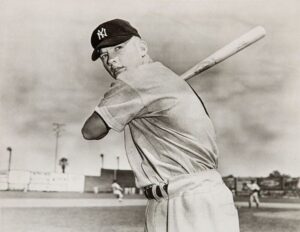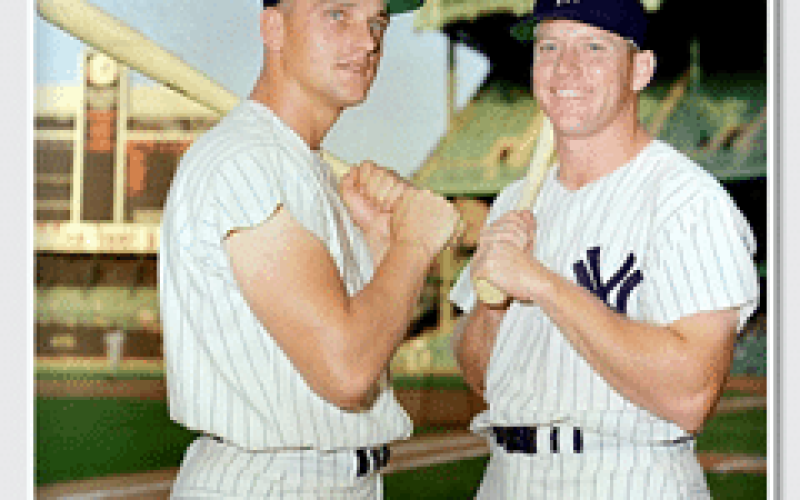The Last Boy: And The End of America’s Childhood in a 2010 New York Times Best-Selling biography of Mickey Mantle by Jan Leavy. Leavy worked for the Washington Post, and Mantle played his entire career with the New York Yankees. For The Last Boy, Leavy interviewed many of Mantle’s teammates, opponents, and his two surviving sons and wife, Merlyn Mantle. In total, Leavy spoke to over 500 people. Leavy wrote about Mantle’s childhood in Commerce, Oklahoma (he was known as the Commerce Comet).
It highlights the sexual abuse he endured at the hands of his older half-sister, his relationship with his domineering father (let’s put it this way, the apple does not fall far from the tree). He also mentioned his struggle with alcoholism (he was a womanizing drunk and celebrity and his off-field activities as a baseball player). Leavy also wrote about Mantle’s extensive injuries and how he endured pain for most of his career. In The Last Boy Leavy effectively paints the picture of the tremendous lost potential of Mickey Mantle, who is the person you know that has wasted the most potential?
The Last Boy: And The End of America’s Childhood Summary
The Last Boy is a sad and well-written book. Because The Last Boy is about America and potential loss, it is accessible to everyone, not just baseball fans. Like most people during that period, Leavy grew up a fan of Mickey Mantle, only to have her heart broken by her hero. The Last Boy painstakingly recounts Mantle’s career and how he dealt with his persistent fame after his career ended. Mantle played for the New York Yankees from 1951 until 1969. Leavy interviewed him in 1983, and Mantle died in 2005 at 63 years old.
Many stories are told in The Last Boy, which is 456 pages long. After playing, Mantle traded on his name and was a greeter for Casinos in Los Vegas, a celebrity golf tournament player, and an autograph signer, among several other jobs. Leavy writes in The Last Boy about Mantle inappropriately feeling up her leg before passing out drunk in her lap and then later apologizing and giving her his sweater during a cold morning while he was golfing. He also played hurt his entire career.
In particular, the torn cartilage Mantle sustained to his right knee during the 1951 World Series (he was a rookie) was a very serious injury. Dr. Stephen Haas, former medical director for the National Football League Players Association, has speculated that Mantle injured his ACL during that incident and played the rest of his career without properly treating it since an ACL could not be repaired with the surgical techniques available in that era. Surgery performed in 1953 removed torn cartilage to prevent further erosion to the joint but also left his knee unstable. Yankee trainers would later wrap up his knees tightly with athletic tape to minimize the effect.
The Relationship Between Mickey Mantle and America

One of the best things about The Last Boy is the parallel between Mickey Mantle and the United States of America. Mantle was good, very good, in the 1950s. That was a time of good feeling in the country. Mantle won the Triple Crown in 1956 (he led the American League in home runs, batting average, and runs batted in). In 1961, his home run record chase with teammate Roger Maris captured the nation’s imagination.
Mickey Mantle broke down during the 1960s, at the same time as the social contract in the United States broke down. He retired from baseball in spring training before the 1969 season. Think of what was going on in the country at that time – hippies, the Vietnam War, the United States had just suffered (in 1968) race riots.
Mickey Mantle’s Career Statistics
Mantle hit 536 home runs in his baseball career, good for 18th all-time, but if he had taken care of himself and not been injured, he would have hit 800 home runs. Mantle batted .298, just shy of the magic 300 number. His 18 home runs hit in the World Series is a record that will likely never be broken. Writing about his year-by-year statistics would be tedious, but those statistics can be found here.
Conclusion
The Last Boy and the End of America’s Childhood is worth reading because the baseball career and life of Mickey Mantle parallels the country. Mickey Mantle is intertwined with America, and it is funny. The country was fascinated by him as a player and followed his post-playing career such that he was a star right up until he died. He was a flawed hero who struggled with being famous, and his nasty faults, which became known only after his playing career ended, robbed him of tremendous potential. Pundits have cited what-ifs” about Mantle since he retired in 1969.








